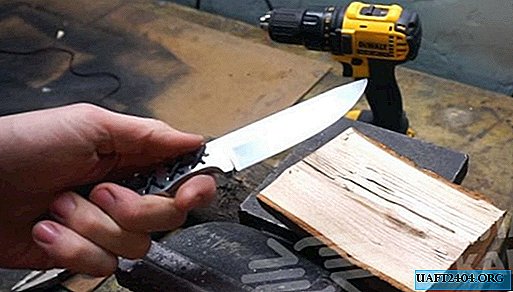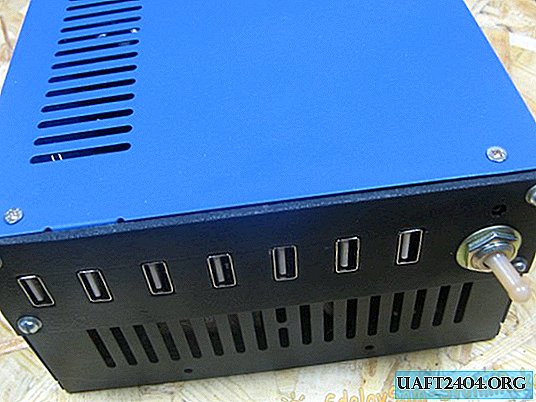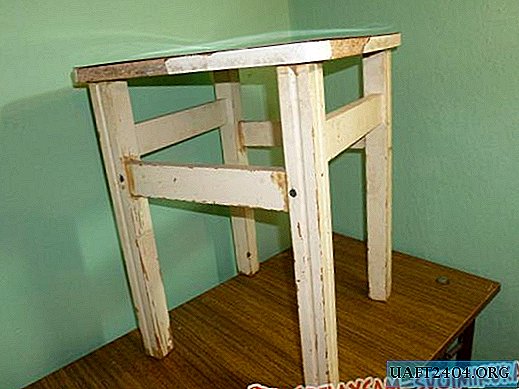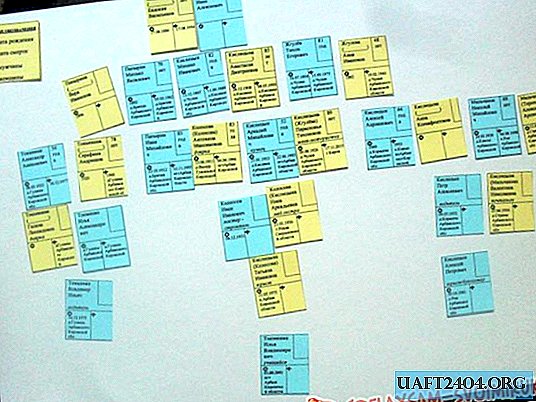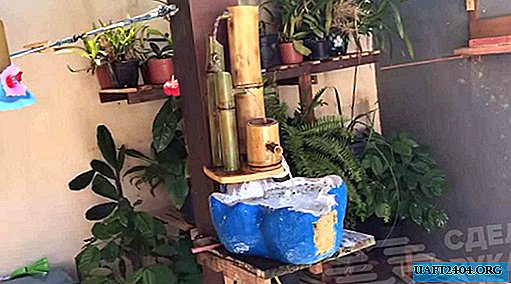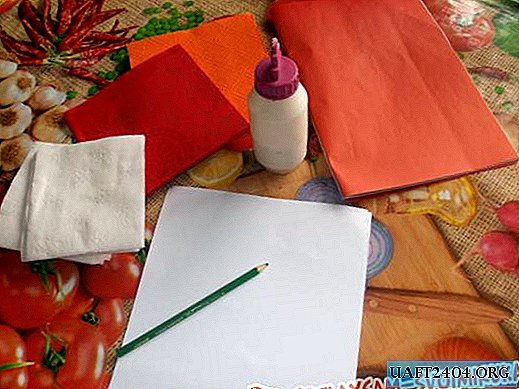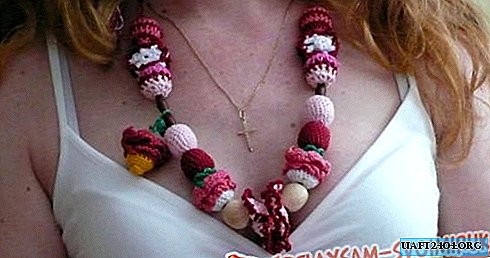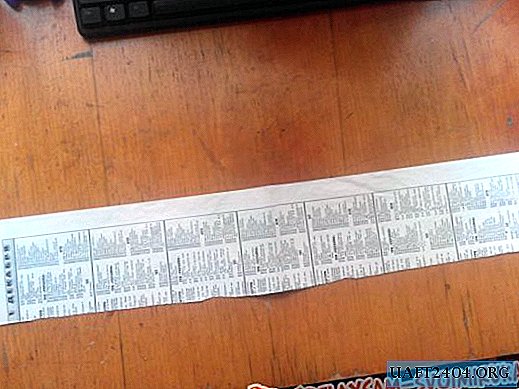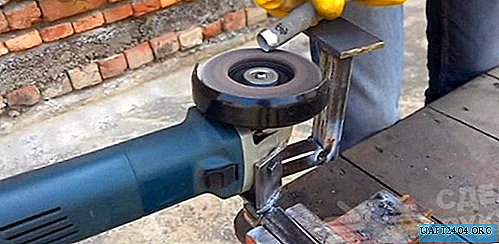Share
Pin
Tweet
Send
Share
Send
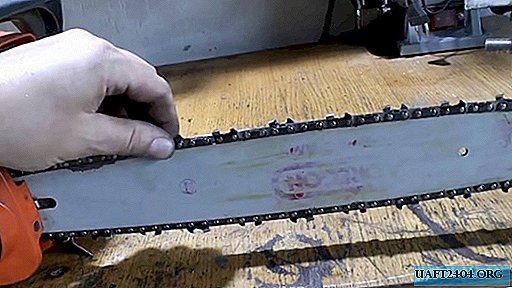
Theory first
Without knowing the following theoretical provisions, it is difficult to establish factors why the tool is sawing crookedly and how to deal with them.
The first reason is that the teeth of the chain wear out unevenly due to the fact that, for example, nails fall under them.

Therefore, the saw quality deteriorates at the saw and, in order to compensate for them, we begin to put more pressure on the tire.

How does the saw react to this? With her sharp teeth, she continues to easily deal with wood, and dull teeth do not cut wood, but are rolled over like a car wheel through a bump. But the shock absorber helps the wheel, and the saw does not.
As a result, the chain is displaced in the groove and rapid wear of one or another rib occurs. The shanks of the chain and the groove along which they move are unevenly worn.
The movement of the chain on the bus becomes uneven. If you do not pay attention to this situation, the wear process will only increase.

The second reason for accelerated wear is associated with incorrect or untimely chain tension, which is the most loaded among the chainsaw nodes. It is recommended to pull it to such an extent that when lifting with your fingers, the lower part of the three shanks is visible. But this method of determining the tension is not entirely accurate.

The chain is pulled when the saw is cold. If this is done correctly, then sagging is not visible and the chain moves easily along the bus. This has its own subtleties. At the working saw, the chain first heats up and its natural sagging is observed, since the metal expands when heated. If this is not taken into account and the chain is tightened, then the situation can be aggravated. When you turn off the saw, the chain cools down while it drags.
With further sawing, the tire warms up with some delay and the tire increases, which also causes a chain pull. And this leads to additional loading of bearings, sprockets, tires and fast chain stretching.
If the chainsaw is hot, it easily lengthens, along with the tightened and non-sharpened chain, which together contributes more to tire and chain wear. The picture will remain unchanged if you install a chain in oil on a worn tire. Sawing with such a chainsaw will remain crooked.
Now the practice of eliminating the curve sawing
How to get rid of this defect? The first thing to do is grind the chain using a stationary machine and rearrange the tire.

The chain can also be quickly sharpened manually, without special equipment, for more details read the article - //sdelaysam-svoimirukami.ru/5000-zatochka-cepi-benzopily-s-pomoschju-dreli.html

If this was done before, and the tire is characterized by uneven wear on both sides, then it will have to be leveled. To do this, get:
- square;
- bench vise;
- grinder;
- new grinding wheel.
The test cut shows that the saw is still sideways.


Take off and do the tire. Put it on a flat surface and put a square. If there is a gap between them, there is wear.

To fix it, we clamp the grinder with the grinding wheel in a vise.

From the outside, at the level of the disk, we make a rigidly fixed plane.


Next, we set the disk on the square and fix the grinder.

Now we put the tire on a horizontal plane and after turning on the grinder we grind ribs on both sides. We check the groove with a square and make sure that it is executed efficiently.


Next, we control that the shanks of the chain have enough height of the groove of the tire. If not, then the tire should be replaced with a new one.


We assemble the saw, pull the chain and check the quality of sawing. Sawing should be effective, and the saw should not be diverted to the side.


Attention - the chain!
It is not superfluous to recall that you cannot cut with a weakened chain. After all, if chips or branches fall into the gap, the consequences can be unpredictable. When the saw does not have a chain catcher and the tire is elongated, the chain can cause serious injury to the legs when wound on them.
When the chain jumps off the tire, the main impact energy is extinguished by the chain catcher. But at the same time, the asterisk suffers greatly.

If this happened several times, the sprocket is covered with deep furrows and the chain tension turns into a problem. When it enters the groove, it weakens, and when exiting it receives a tightness.
In this case, an urgent change of the sprocket is required so as not to bring the matter to a chain break, scattering of bearings, breakdown of the sprocket.
Even a new chain may break if the connecting strips are not installed correctly at the rivet. Chains come in bays, so their riveting and packing is inevitable.

So when buying a chain, you need to pay a lot of attention to the connecting link. The rivets on them should be larger or lighter. It is also necessary to check whether the connection strips are installed correctly. Sometimes the direction is indicated by an embossed arrow. When the arrow is missing, the correct installation is determined by the front support, which is slightly larger than the rear.

If the connecting strip is not installed correctly, then it will go awry. The connecting link will have to take up an increased load, which contributes to the rivet cut, and this will lead to an open circuit.
Constant care of the sprocket, tire and chain will certainly increase the life of the chainsaw.
Share
Pin
Tweet
Send
Share
Send

